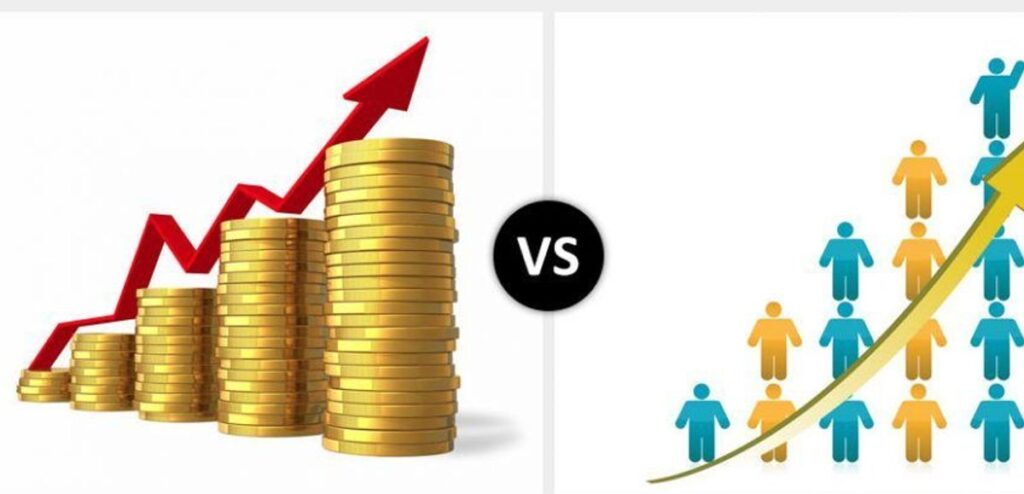DIFFERENCE BETWEEN ECONOMIC GROWTH AND ECONOMIC DEVELOPMENT
Economic growth and economic development are two concepts that are often used interchangeably, but they actually have distinct meanings.
Economic growth refers to an increase in the production of goods and services in an economy over a period of time, typically measured by an increase in Gross Domestic Product (GDP). Economic growth can be achieved through improvements in productivity, investments in physical and human capital, technological advancements, and an increase in the labor force.
On the other hand, economic development refers to a broader and more qualitative improvement in the economic, social, and political well-being of a society. Economic development encompasses improvements in areas such as health, education, infrastructure, and governance, as well as economic growth. It is a more holistic and sustainable approach to promoting long-term economic growth and improving people’s quality of life.
In summary, economic growth focuses on the quantitative aspect of the economy, while economic development emphasizes the qualitative and holistic aspects of societal progress.
Here are some point-wise differences between economic growth and economic development:
1. Definition: Economic growth refers to an increase in the production of goods and services in an economy over a period of time, typically measured by an increase in Gross Domestic Product (GDP). Economic development, on the other hand, refers to a broader and more qualitative improvement in the economic, social, and political well-being of a society.
2. Focus: Economic growth focuses on the quantitative aspect of the economy, while economic development emphasizes the qualitative and holistic aspects of societal progress.
3. Indicators: Economic growth is typically measured by indicators such as GDP, per capita income, and employment levels. Economic development is measured by a broader range of indicators, such as literacy rates, life expectancy, access to healthcare and education, infrastructure development, and political stability.
4. Timeframe: Economic growth is usually measured over short to medium-term timeframes, such as one or two years. Economic development takes a longer-term view, typically over decades or generations.
5. Approach: Economic growth is often pursued through market-oriented policies that encourage investment and entrepreneurship, while economic development requires a more holistic approach that may involve government intervention, social policies, and public investments.
6. Sustainability: Economic growth can be unsustainable if it is based on depletion of natural resources, environmental degradation, or social inequality. Economic development seeks to ensure that economic growth is sustainable over the long term by promoting social equity, environmental protection, and responsible resource management.
In summary, while economic growth and economic development are related concepts, they differ in terms of their focus, indicators, timeframe, approach, and sustainability.


